
Our Mission is to Harness the Power of the Immune System to Fight Cancer
Why is Cancer Difficult to Treat?
The Tumor Microenvironment - A Formidable Obstacle
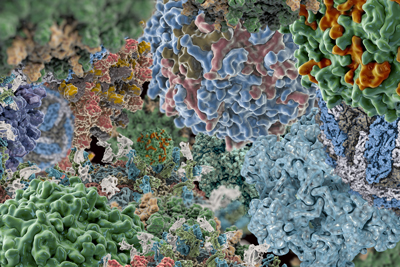
The Tumor Microenvironment: A dense collection of various cells and biological factors
The tumor consists of a complex array of cells and factors, some of which promote the growth of the cancer and some try to fight the tumor. Unfortunately, without treatment, the cells that help the tumor grow overshadow and dominate those cells that try to stop it resulting in cancer progression. Research in the Center focuses on deciphering the complex interactions within the tumor microenvironment in order to design more effective therapies to treat cancer.
However, there is hope: A New Era for Cancer Therapy – Immunotherapy
What is Immunotherapy?
Immunotherapy is an innovative approach to spark the body's own immune cells to recognize and destroy the tumor. Our Center researches a two-pronged strategy:
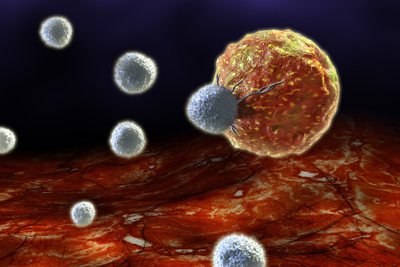
A T cell (bluish gray) attacking and killing a cancer cell (orange)
1. Target and eliminate the immune cells that promote cancer progression.
2. Stimulate the immune cells that fight cancer to elicit robust anti-tumor responses.
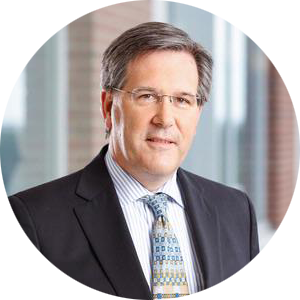
David C. Linehan, M.D.
Director
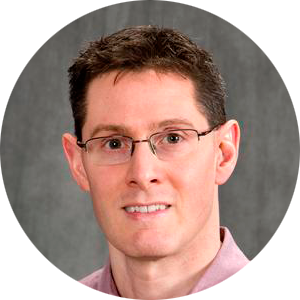
Scott A. Gerber, Ph.D.
Co-Director
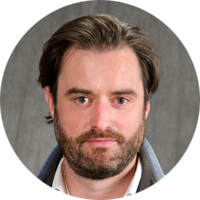
Brian A. Belt
Center Manager
Research Themes

Targeting Myeloid Cells to Treat Pancreatic Cancer

Stimulating the Immune System to Enhance Radiotherapy

Genetic Alterations of Melanoma: Key Features that Modulate Treatment Efficacy

T cell Engineering for Cancer Immunotherapy

Microbiome and Cancer

Predicting Treatment Efficacy Using Shear Wave Elastography
News
- Scott Gerber received a 2 million dollar R01 research grant from the National Cancer Institute focusing on an innovative immunotherapeutic strategy to treat pancreatic cancer.
- Taylor Uccello was awarded a travel award from the Graduate Women in Science (GWIS) Society to attend the Advanced Course in Immunology this summer.
- David Linehan recently received a multi-million-dollar R01 grant from the National Cancer Institute of exploring novel therapies for pancreatic cancer.
- Congratulations to Taylor Uccello for winning the top prize at the James P. Wilmot Cancer Institute 23rd Annual Scientific Symposium in Solid Tumor Biology and Therapy.
- Aditi Murthy successfully defended her graduate thesis. Good luck at your post doc at Uniformed Services University studying the role of Sca-1 in breast cancer.
Support Our Mission

Thank you for your generosity to support tumor immunology research here in Rochester, NY and the Finger Lakes Region. Your gift has a tremendous impact on the future success of cancer research at URMC.
Contact Us
The Center for Tumor Immunology Research
601 Elmwood Ave
Rochester NY, 14642
Patients, Please Call: